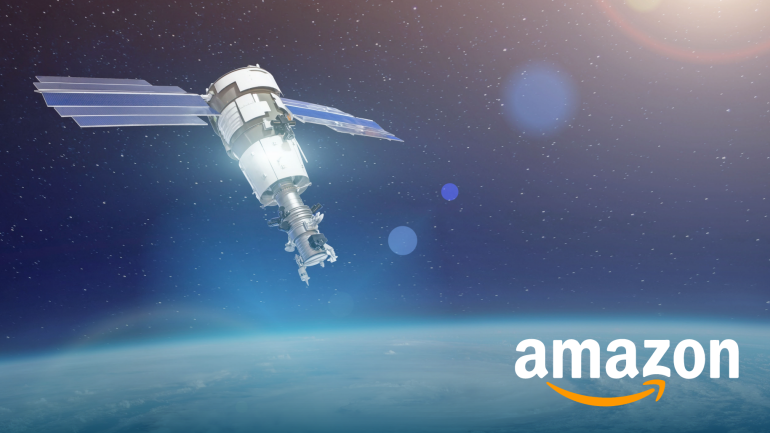Spark’s partnership with Lynk Global marks a major milestone in mobile connectivity for New Zealand, testing direct-to-consumer satellite services to enhance network coverage and combat challenges posed by climate change.
AT&T challenges T-Mobile’s plan to harness SpaceX’s satellite services for improved mobile network coverage, citing potential interference and spectrum allocation violations. This rivalry intensifies the race to offer extensive coverage in hard-to-reach areas.
Viasat’s acquisition of Inmarsat advances as the UK’s Competition and Markets Authority grants unconditional approval, easing market competition concerns for in-flight Wi-Fi services amidst a rapidly evolving satellite communications sector.
The ViaSat-3 Americas satellite has completed its Final Integrated Satellite Test (FIST) and has now advanced to the Flight Final phase of integration, where it is undergoing final build-up for its flight configuration, according to the satellite communications provider Viasat. The satellite had previously passed mechanical environmental testing and thermal vacuum testing, which replicated vacuum and extreme heat and cold temperatures in orbit, where the satellite is projected to operate for the next 15 years. FIST is intended to test all of the satellite’s payload and bus systems to ensure they perform correctly after the pressures of mechanical environmental testing, which simulates the spacecraft’s launch. Following the mechanical and thermal strains of the previous test phases, FIST confirmed that the satellite continued to function as intended. The Ka-band satellites of the ViaSat-3 class are anticipated to offer the finest bandwidth economics in the sector with significant flexibility…
In order to extend mobile service to isolated rural regions, the Belgian communications operator BICS has inked a deal with the satellite-direct-to-phone telecoms business Lynk. This agreement will make it possible for mobile network operators (MNOs) to provide services to subscribers in rural areas in North America, the Caribbean, Latin America, South-East Asia, and a number of rural African regions. BICS focuses on cloud, mobility and IoT, while offering digital communications on a worldwide scale. The company also collaborates with MNOs and mobile virtual network operators (MVNOs). This collaboration aims to solve the problem of remote locations that currently lack any form of mobile connectivity. BICS will use its network to connect the cell carriers with the Lynk satellite constellation. Lynk’s solution enables conventional roaming partner integration without requiring that the mobile operators’ networks undergo hardware or software upgrades, thereby expanding coverage to outlying regions, islands, and…
The US Federal Communications Commission (FCC) has given AST SpaceMobile, a five-year-old company located in Midland, Texas, permission to test a satellite that has the potential to deliver cellular broadband access for smartphone users in the US and throughout the world. According to the business, it is developing the first and only space-based cellular broadband network that will be immediately accessible by regular mobile phones. SpaceMobile, the company’s proposed network, intends to provide 4G/5G access to everyone on the world, on land, at sea, and in the air. No matter where they are, mobile customers will be able to seamlessly roam from terrestrial networks to the space-based network. AST SpaceMobile is launching BlueWalker 3, a test satellite meant to interact directly with mobile phones using 3GPP standard frequencies. The FCC has granted the business an experimental license for BlueWalker 3 space-to-ground testing in the United States. At least…
On July 30, 2021, Ariane 5, a European heavy-lift space launch vehicle developed and operated by Arianespace for the European Space Agency, successfully launched its first flight in nearly a year. The aim of the mission is to deploy a pair of geostationary communications satellites for commercial operators in Brazil and France. One of the satellites, called the Star One D2, will be operated by Embratel, a Brazilian telecommunications company. The Star One D2 will give Embratel the ability to expand its broadband coverage to new regions in Central and South America, supply Internet access to those in under-serviced areas, and increase X-band payload for government use in the Atlantic region. The second satellite, named Eutelsat Quantum, which was developed as part of an ESA partnership with satellite operator Eutelsat and major manufacturer Airbus, has an active antenna, a first for the European commercial telecommunications industry. This revolutionary…
OneWeb, a global communications company that provides broadband satellite Internet services around the world, has announced another successful launch of 36 Arianespace satellites from the Vostochny Cosmodrome. With this launch, the company gets closer to reaching their “Five to 50” goal and the lift off of commercial services by the end of this year. The launch took place on May 28th at 18:38 BST. The OneWeb satellites detached from their host rocket and were distributed in nine clusters over 3 hours and 52 minutes. Signals were received from all 36 satellites, indicating their operational status. This launch is the fourth in a series of five total launches needed to complete the “Five to 50” program. The program will allow OneWeb to offer connectivity in all parts of the UK, Alaska, Northern Europe, Greenland, Iceland, the Arctic Seas and Canada. The service is predicted to be available by the end…
Amazon, the multinational technology company, has received the approval from America‘s Federal Communications Commission (FCC) to deploy 3,236 internet satellites into low Earth orbit (LEO) and to provide the US with satellite-based broadband services. The project, named Kuiper, was first announced last spring with the intent to build a LEO satellite constellation that would have the potential to provide cost-effective broadband services to unserved and underserved communities around the world. A project of this magnitude requires a great amount of resources, therefore Amazon will invest more than $10 billion in the project. This investment will not only provide broadband services, but will also create workplaces and infrastructure around the United States. Dave Limp, senior VP at Amazon, commented: “There are still too many places where broadband access is unreliable or where it doesn’t exist at all. Kuiper will change that. Our $10 billion investment will create jobs and…
Global satellite operator Telesat, the Vodafone Group and the University of Surrey in the UK, have successfully accomplished the world’s first 5G backhaul demonstration deploying a Low Earth Orbit (LEO) communications satellite. This successful trial demonstrates that LEO satellites are able to provide efficient backhaul transport channels for mobile network operators (MNOs), including for 5G advanced services. During the live test conducted by these partners in April, Telesat’s Phase 1 LEO satellite was connected to the University of Surrey’s 5G testbed network, with the support of specialist Vodafone engineers. Vodafone also provided some funding and arranged licensing for the demonstration system. John Miller, Head of Satellite Engineering at Vodafone, said: “The use of LEO satellites provides an additional mobile backhaul option and can be an important part of the delivery system particularly to customers in our markets who live in rural areas.” Professor Barry Evans, University of Surrey, said: “The University of Surrey is very…













